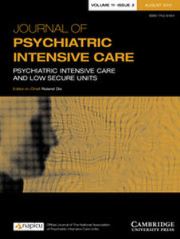No CrossRef data available.
Article contents
Lessons we can learn from opera
Published online by Cambridge University Press: 19 September 2013
Abstract
I take the art form opera as an example from which practicing mental health professionals can learn some important lessons. After an introduction to the representation of mental illness in opera, the focus turns to one specific opera: La Bohème. Some pivotal scenes in this opera are reviewed and reflection points for mental health practitioners are suggested. By reflecting on the words sung in the opera, I draw parallels between mental health clinical practice and the content and performance of opera. The paper concludes with some general lessons mental health practitioners can take from opera.
Keywords
Information
- Type
- Commentary
- Information
- Copyright
- Copyright © NAPICU 2013
References
Bhodi, B. (2000) The Noble Eightfold Path: Way to the End of Suffering. Onalaska, USA: BPS Pariyatti Editions.Google Scholar
Durà-Vilà, G., Bentley, D. (2009) Opera and madness: Britten's Peter Grimes—a case study. Medical Humanities. 35(2): 106–109.Google Scholar
Jones, M. (1990a) The psychiatry of opera: Don Giovanni. Psychiatric Bulletin. 14: 417–421.Google Scholar
Jones, M. (1990b) The psychiatry of opera: Lucia di Lammermoor. Psychiatric Bulletin. 14: 556–557.Google Scholar
Jones, M. (1990c) The psychiatry of opera: Verdi's Macbeth. Psychiatric Bulletin. 14: 735–737.Google Scholar
Jones, M. (1991) The psychiatry of opera: Richard Wagner. Psychiatric Bulletin. 15: 98–100.Google Scholar
Kellert, S.H. (1993) In the Wake of Chaos: Unpredictable Order in Dynamical Systems. University of Chicago Press. 176 pp.Google Scholar
Miller, W.R., Sovereign, G., Krege, B. (1988) Motivational interviewing with problem drinkers: II. The drinker's check-up as a preventive intervention. Behavioural Psychotherapy. 16: 251–268.Google Scholar
Miller, W.R. (1983) Motivational interviewing with problem drinkers. Behavioural Psychotherapy. 11: 147–172.Google Scholar
Miller, W.R., Rollnick, S. (1991) Motivational Interviewing, Preparing People to Change Addictive Behavior. New York: The Guildford Press.Google Scholar
Rosenthal, H., Warrack, J. (1975) The Concise Oxford Dictionary of Opera. Oxford University Press. 446 pp.Google Scholar
Vyskočilová, J., Praško, J. (2012) Socratic dialogue and guided discovery in cognitive behavioral supervision. Activitas Nervosa Superior Rediviva. 54(1): 35–45.Google Scholar
Weber, M. (1988) Gesammelte Aufsätze zur Wissenschaftslehre. Johannes Winckelmann (ed.). J. C. B. Mohr (Paul Siebeck).Google Scholar

